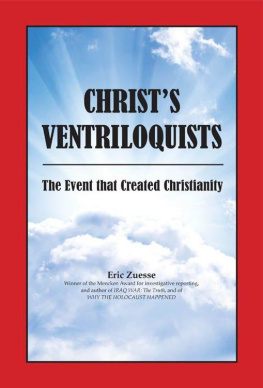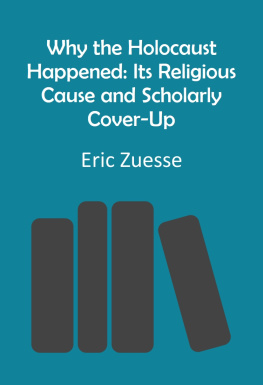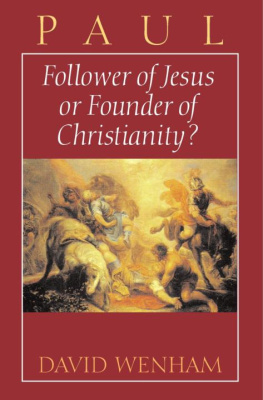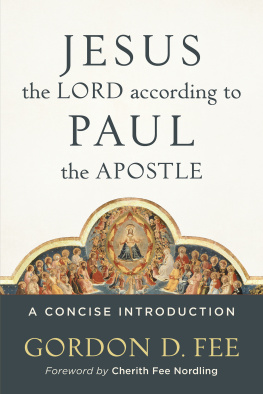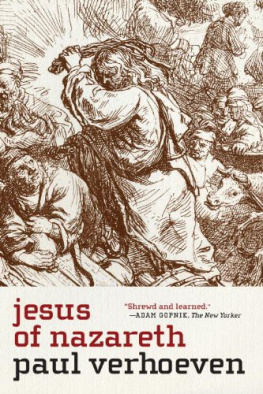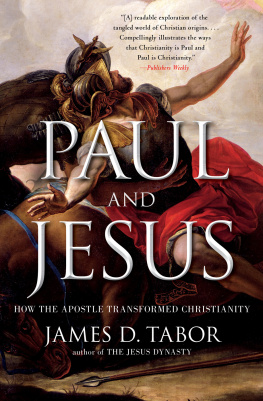DESCRIPTION
CHRISTS VENTRILOQUISTS is a work of investigative history. It documents and describes Christianitys creation-event, in the year 49 or 50, in Antioch (present-day Antakya, Turkey), 20 years after Jesus had been crucified in Jerusalem for sedition against Roman rule. On this occasion, Paul broke away from the Jewish sect that Jesus had begun, and he took with him the majority of this sects members; he convinced these people that Jesus had been a god, and that the way to win eternal salvation in heaven is to worship him as such. Paul here explicitly introduced, for the first time anywhere, the duality of the previously unitary Jewish God, a duality consisting of the Father and the Son; and he implicitly introduced also the third element of the Trinity, the Holy Ghost.
This work also explains and documents the tortuous 14-year-long conflict Paul had had with this sects leader, Jesuss brother James, a conflict that caused Paul, in about the year 50, to perpetrate his coup dtat against James, and to start his own new religion: Christianity.
Then, this historical probe documents that the four canonical Gospel accounts of the words and actions of Jesus were written decades after Jesus, by followers of Paul, not by followers of Jesus; and that these writings placed into the mouth of Jesus the agenda of Paul. Paul thus effectively became, via his followers, Christs ventriloquist .
A work such as this can be documented and produced only now, after the development (during the past 70 years) of modern legal/forensic methodology. Previously, the only available methods, which scholars have used, simply assumed the honesty-of-intent of all classical documents, especially of canonical religious ones, such as Pauls epistles, and the Four Gospels. Only now is it finally possible to penetrate deeper than that, to reach the writers intent, and not merely his assertions, and to identify when this intent is to deceive instead of to inform. Whereas scholars have been able to discuss only the truth or falsity of particular canonical statements, it is now possible to discuss also the honesty or deceptiveness of individual statements. This opens up an unprecedented new research tool for historians, and CHRISTS VENTRILOQUISTS is the first work to use these new methods to reconstruct, on this legal/forensic basis, not just how crimes took place, but how and why major historical events (criminal or not), such as the start of Christianity, actually occurred.
The author explains: What I am doing in this work is to reconstruct from the New Testament the crucial events that produced it, without assuming whether what the NT says in any given passage is necessarily true or even honest. Instead of treating the NT as a work that reports history, the NT is treated as a work whose history is itself being investigated and reported. Its origin goes back to this coup dtat that Paul perpetrated in Antioch in the year 49 or 50 against Jesuss brother James in Jerusalem, whom Jesus in Jerusalem had appointed in the year 30 as his successor to lead the Jewish sect that Jesus had started. The Gospel accounts of Jesus reflected Pauls coup dtat not actually Jesus, who would be appalled at the Christian concept of Christ. That concept was radically different from the Jewish concept of the messiah, and Paul knew this when he created it.

Copyright 2012 by Eric Zuesse
Hyacinth Editions, New York, N.Y.
ISBN-13: 978-0615573014
ISBN-10: 0615573010
eBook ISBN: 978-1-61914-918-2
News is what other people want to keep hidden.
All the rest is publicity.
Bill Moyers (interview), KDViations , Winter 2006
_________
We cannot control the future,
unless we know the truth about the past.
History must be cleansed of myths,
in order to control the future.
Theres no other way,
but catastrophe.
The choice
is ours,
now
.
NOTE ON STYLE
Whereas the norm is to italicize the titles of books, except for the titles of the books in the Bible, the titles of all books are italicized here. For example, Mark is italicized. This is done not only in order to be consistent, but in order to avoid confusing the reader between a book and the author of that book. The author of the book of Mark is referred to here as Mark (no italics), regardless of what that persons name actually was; no assumption is being made here that a person by the name of Mark wrote Mark .
Ampersands (&) are sometimes used here to abbreviate strings of references within the same chapter of a biblical book. For example, Galatians 1:1&11&12&15&16 is referring to 1:1, 1:11, 1:12, 1:15, and 1:16, in Galatians .
Footnotes are used here in order to amplify upon a point in the discussion, not to cite sources which are identified within the discussion itself.
The References/Sources section at the end provides further information regarding the documentation conventions used here.
CONTENTS
Decoding the DNA in what turns out to be the
confession of the man who started Christianity

BOXED ITEMS:
This book is about our ethico/moral assumptions that are so widely shared theyre not even questioned but that nonetheless might be false. These assumptions are what make Western Civilization Western Civilization. To investigate them is not to prefer other civilizations, but is only to understand our own. And in order to understand Western Civilization, one must accurately know the event that caused it, that shaped it.
Western Civilization the shared civilization of all Christian-majority countries started when the religion that defines it did. The moral base in each of these nations is Christianity; and, though different Western nations may vary in their respective interpretations of Christianitys Scripture, that Scripture the New Testament is the source of the moral bases in all of these many countries. Its what we all share. So, understanding what created the New Testament, is understanding the real source of our common moral base. We cannot comprehend the civilization in which we live, unless we know how the New Testament came about the event that caused it because the New Testament is the moral foundation for Western Civilization itself.
Some people erroneously think that Christianity is Jesus, not the New Testament. However, in reality, they know Jesus via the New Testament, which is the only part of the Bible that quotes him. Some non -biblical documents also contain quotations attributed to Jesus, but those alleged Jesus-statements are not part of Christianity, and therefore explaining what caused them is of no concern. Even if a person we think of as Jesus existed and uttered those statements, our world hasnt been shaped by them, and so there will be no inquiry here into what caused the writing of those words of Jesus.
The words of Jesus that are in the Bible were not written by Jesus, but the Roman Catholic Church canonized them as representing what he said. The present book investigates to determine who actually wrote them, and why. The why turns out to be every bit as important as the who here, because this investigation finds that the people who wrote those words were followers of Paul, not followers of Jesus as they claimed. Of course, Paul himself claimed to be a follower of Jesus; but this investigation finds also that, in the later part of his career, when Paul wrote the letters by which he subsequently became known to history, he had, in fact, broken away from Jesuss followers, and was competing against those people, no longer working for or with them. Pauls followers were actually enemies of Jesuss followers, and wrote the Gospels. They never met Jesus, and he would have been shocked and appalled at many of the quotations they attributed to him. These preachments being made in his name would have outraged him.
Next page
